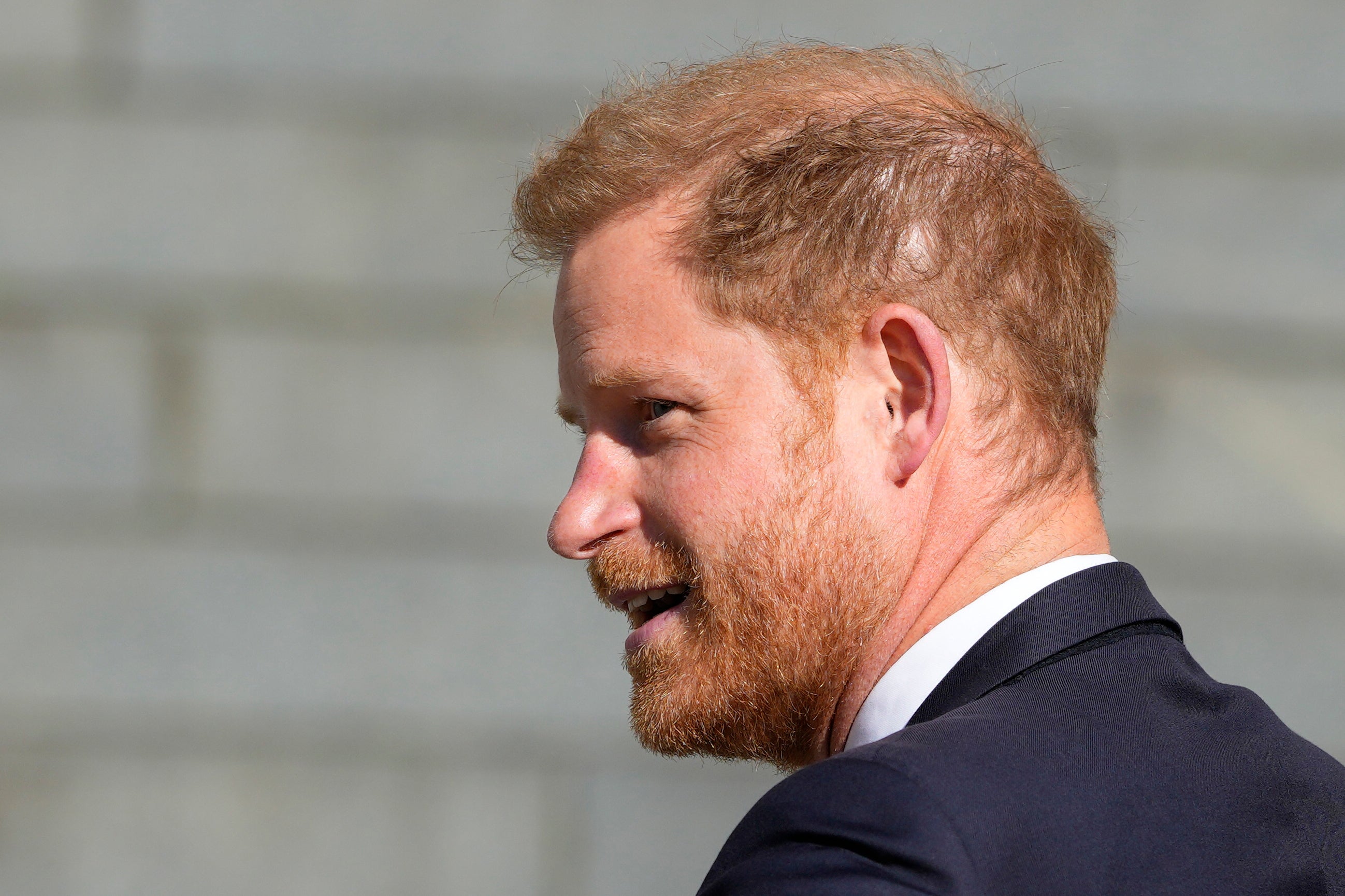London judge rejects Prince Harry's bid to add allegations against Rupert Murdoch in tabloid lawsuit
A London judge says Prince Harry can't expand his privacy lawsuit against The Sun tabloid's publisher to include allegations that Rupert Murdoch and some other executives were part of an effort to conceal and destroy evidence of unlawful information gathering

Your support helps us to tell the story
From reproductive rights to climate change to Big Tech, The Independent is on the ground when the story is developing. Whether it's investigating the financials of Elon Musk's pro-Trump PAC or producing our latest documentary, 'The A Word', which shines a light on the American women fighting for reproductive rights, we know how important it is to parse out the facts from the messaging.
At such a critical moment in US history, we need reporters on the ground. Your donation allows us to keep sending journalists to speak to both sides of the story.
The Independent is trusted by Americans across the entire political spectrum. And unlike many other quality news outlets, we choose not to lock Americans out of our reporting and analysis with paywalls. We believe quality journalism should be available to everyone, paid for by those who can afford it.
Your support makes all the difference.Prince Harry can't expand his privacy lawsuit against The Sun tabloid publisher to include allegations that Rupert Murdoch and some other executives were part of an effort to conceal and destroy evidence of unlawful information gathering, a London judge ruled Tuesday.
The decision by Judge Timothy Fancourt's in the High Court was a mixed ruling for the Duke of Sussex in one of his three major invasion of privacy lawsuits he has brought in his ongoing battles against British tabloids.
Fancourt rejected several of Harry's proposed amendments, but he also allowed the prince to add allegations against other journalists and private investigators that he claims used unlawful means to snoop on him for scoops.
But Fancourt said allegations that Murdoch “turned a blind eye” to wrongdoing added nothing meaningful to claims made against News Group Newspapers, or NGN. The judge said those claims already include “trusted lieutenants,” such as Murdoch's younger son, James Murdoch, and Rebekah Brooks, who was editor at News of the World and The Sun.
The judge said some of Harry's efforts to blame other executives were to further a political agenda.
“There is a desire on the part of those running the litigation on the claimants’ side to shoot at ‘trophy' targets, whether those are political issues or high-profile individuals,” Fancourt wrote. “Tempting though it no doubt is for the claimants’ team to attempt to inculpate the man at the very top, doing so will add nothing to a finding that Ms. Brooks and Mr. James Murdoch or other senior executives knew and were involved, if that is proved to be the case,” Fancourt wrote.
Brooks is chief executive officer of News UK, a division of News Corp. media holdings that controls The Sun and The Times among other publications. James Murdoch resigned from News Corp. in 2020.
Rupert Murdoch, 93, was executive chairman of News Corp. and director of its subsidiary, News International, now News UK, which was NGN’s parent when News of the World folded. Murdoch stepped down last fall as leader of both Fox News’ parent company and his News Corp.
Both sides claimed victory in the ruling that precedes a trial scheduled early next year, but Fancourt said that it was a split victory with the defense gaining an edge on the issues argued.
News Group said that it welcomed the decision.
The company issued an unreserved apology in 2011 to victims of voicemail interception by the News of the World, which closed its doors after a phone hacking scandal. NGN said it has settled 1,300 claims for its newspapers, though The Sun has never accepted liability.
The three-day hearing in March included claims against NGN by others, including actor Hugh Grant, who accused The Sun of tapping his phone, bugging his car and breaking into his home to snoop on him.
Since then, Grant said he had reluctantly agreed to accept "an enormous sum of money” to settle his lawsuit.
Grant said he had to settle because of a court policy that could have stuck him with a huge legal bill even if he prevailed at trial. A civil court rule intended to avoid jamming up the courts would have required Grant to pay legal fees to both sides if he won at trial but was awarded anything lower than the settlement offer.
Attorney David Sherborne has suggested that Harry may have to settle for the same reason.
Harry has a similar case pending against the owner of the Daily Mail.
Last year, he won his first case to go to trial when Fancourt found phone hacking was “widespread and habitual” at Mirror Group Newspapers. In addition to a court judgment, he settled remaining allegations that included his legal fees.